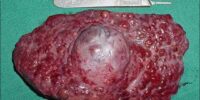Cancer Genetics: Understanding The Role Of Genetic Mutations In Cancer
Cancer is a complex disease that arises from the accumulation of genetic mutations in our cells. These mutations can disrupt the normal regulation of cell growth and division, leading to uncontrolled proliferation and the formation of tumors. Understanding the role of genetic mutations in cancer is crucial for developing effective prevention strategies, diagnostic tools, and targeted therapies.
In this article, we will explore the various types of genetic mutations found in cancer cells and delve into the mechanisms through which these mutations accumulate over time. We will also examine how genetic mutations impact cell cycle regulation and DNA repair mechanisms, as well as their association with oncogenes (genes that promote cancer) and tumor suppressor genes (genes that prevent cancer).
Furthermore, we will discuss how specific genetic mutations can increase an individual’s risk of developing cancer and explore the importance of genetic testing in identifying individuals who may be more susceptible to certain types of cancers.
Finally, we will highlight recent advancements in targeted therapies that aim to specifically target and exploit these genetic mutations for more precise and effective cancer treatment.
By gaining a deeper understanding of cancer genetics and its underlying molecular mechanisms, we can pave the way for improved strategies in preventing, diagnosing, and treating this devastating disease.
Key Takeaways
- Cancer arises from the accumulation of genetic mutations in cells, which disrupt cell growth and division, leading to uncontrolled proliferation and tumor formation.
- Different types of genetic mutations, such as point mutations, gene amplification, and chromosomal rearrangements, play a role in cancer development and progression.
- Mutations in cell cycle regulators and DNA repair mechanisms can contribute to uncontrolled cell proliferation and genomic instability, increasing the risk of cancer development.
- Genetic testing allows for personalized recommendations and targeted treatments, such as targeted therapies that exploit genetic mutations in cancer cells, providing more effective and personalized treatment options.
Types of Genetic Mutations in Cancer
Different types of genetic mutations play a crucial role in the development and progression of various cancers, serving as potential targets for therapeutic interventions. Mutations can occur in different genes that control cell growth, division, and DNA repair mechanisms.
One type of mutation is known as point mutations, which involve changes in a single nucleotide base pair. These alterations can lead to the production of abnormal proteins or disrupt critical signaling pathways involved in tumor suppression or cell cycle regulation.
Another type of mutation is gene amplification, where multiple copies of a gene are produced, resulting in an overexpression of certain proteins that promote cancer growth.
Additionally, chromosomal rearrangements can occur when parts of two different chromosomes break and rejoin incorrectly, leading to abnormal fusion proteins with oncogenic properties.
Understanding the diverse types of genetic mutations present in cancer is essential for developing targeted therapies aimed at restoring normal cellular function and halting tumor progression.
Mechanisms of Mutation Accumulation
Mechanisms of mutation accumulation in the context of cancer genetics involve an intricate interplay between various genetic and environmental factors.
Genetic mutations can arise through several mechanisms, including errors during DNA replication, exposure to mutagenic agents such as radiation or certain chemicals, and defects in DNA repair mechanisms.
Errors during DNA replication occur when the enzymes responsible for copying the DNA make mistakes, leading to changes in the genetic code.
Mutagenic agents can directly damage the DNA structure or interfere with its replication process.
Additionally, defects in DNA repair mechanisms can result in the accumulation of mutations over time.
These mechanisms contribute to the development and progression of cancer by altering key genes involved in cell growth regulation, tumor suppression, and DNA repair pathways.
Understanding these mechanisms is crucial for developing effective strategies for cancer prevention and treatment.
Role of Genetic Mutations in Cell Cycle Regulation
An in-depth analysis of the interplay between genetic mutations and cell cycle regulation reveals a complex network that influences the delicate balance of cellular growth and division.
The cell cycle is tightly regulated by a series of checkpoints that ensure accurate DNA replication and proper segregation of chromosomes during mitosis.
Genetic mutations can disrupt these checkpoints, leading to uncontrolled cell proliferation, which is a hallmark of cancer.
Mutations in key regulators of the cell cycle, such as cyclins, cyclin-dependent kinases (CDKs), and tumor suppressor genes like p53, can result in abnormal progression through the cell cycle or failure to arrest at critical checkpoints.
These mutations can lead to genomic instability and accumulation of additional mutations, further fueling tumor development and progression.
Understanding the role of genetic mutations in cell cycle regulation is crucial for developing targeted therapies that aim to restore normal cellular growth control mechanisms in cancer cells.
Genetic Mutations and DNA Repair Mechanisms
DNA repair mechanisms play a critical role in maintaining the integrity of the genome, preserving genetic information, and preventing the accumulation of potentially harmful mutations. When DNA damage occurs as a result of endogenous or exogenous factors, such as exposure to ultraviolet radiation or chemical agents, various repair pathways are activated to correct the damage and maintain genomic stability.
These pathways include:
- Base excision repair (BER)
- Nucleotide excision repair (NER)
- Mismatch repair (MMR)
- Homologous recombination (HR)
- Non-homologous end joining (NHEJ)
Each pathway is specialized for repairing specific types of DNA lesions, such as single-strand breaks, bulky adducts, mismatches, and double-strand breaks. Failure to efficiently repair DNA damage can lead to the accumulation of mutations that contribute to cancer development by disrupting key cellular processes and promoting genomic instability.
Understanding how genetic mutations impact DNA repair mechanisms is crucial for developing targeted therapies aimed at restoring normal DNA repair function in cancer cells.
Oncogenes and Tumor Suppressor Genes
Oncogenes and tumor suppressor genes play a crucial role in the delicate balance between cell growth and inhibition, holding the potential to evoke powerful emotions regarding the intricate molecular landscape underlying cancer development.
Oncogenes are altered forms of normal genes that promote uncontrolled cell division when activated. These genetic mutations can be inherited or acquired throughout life due to exposure to carcinogens or errors during DNA replication.
In contrast, tumor suppressor genes act as brakes on cell growth and prevent the formation of tumors. Mutations in these genes reduce their ability to regulate cell division, leading to uncontrolled proliferation and ultimately contributing to cancer development.
Both oncogenes and tumor suppressor genes are critical players in the complex network of genetic alterations that drive cancer progression, making them important targets for therapeutic interventions aimed at restoring normal cellular control mechanisms.
Genetic Mutations and Cancer Risk Factors
Exposure to certain environmental and lifestyle factors can significantly increase the likelihood of developing malignancies, stirring both concern and a desire for preventative action among individuals.
Genetic mutations play a crucial role in cancer risk factors. Mutations can occur spontaneously or be inherited from parents, leading to an increased susceptibility to cancer. For example, certain hereditary mutations in BRCA1 and BRCA2 genes are associated with a higher risk of breast and ovarian cancers.
Additionally, exposure to carcinogens like tobacco smoke, ultraviolet radiation, and certain chemicals can cause DNA damage and lead to genetic mutations that contribute to cancer development.
It is important to note that not all genetic mutations result in cancer; some may be harmless or have unknown effects. Understanding the relationship between genetic mutations and cancer risk factors is essential for developing effective strategies for prevention, early detection, and treatment of this complex disease.
Genetic Testing for Cancer Susceptibility
Genetic mutations play a crucial role in the development and progression of cancer. Understanding these mutations is essential for identifying individuals at risk and implementing appropriate preventive measures.
In this context, genetic testing has emerged as a valuable tool to assess an individual’s susceptibility to cancer. Genetic testing involves analyzing an individual’s DNA to identify specific mutations associated with increased cancer risk. By detecting hereditary mutations, healthcare professionals can provide personalized recommendations on screening, prevention strategies, and treatment options for patients and their families.
Moreover, genetic testing allows for the identification of potential targets for precision medicine approaches, leading to more effective treatments tailored to the patient’s genetic profile. However, it is important to consider ethical implications such as privacy concerns and psychological impact when implementing widespread genetic testing programs.
Targeted Therapies for Genetic Mutations in Cancer Treatment
Targeted therapies tailored to specific molecular alterations have revolutionized the treatment landscape in cancer. These therapies aim to exploit the genetic mutations present within cancer cells, providing more effective and personalized treatment options.
By identifying specific mutations driving tumor growth, targeted therapies can selectively inhibit or block the function of these mutated genes or proteins involved in tumor progression. This approach offers several advantages over traditional chemotherapy drugs, including increased efficacy and reduced toxicity.
Examples of targeted therapies include small molecule inhibitors that directly target mutated proteins, monoclonal antibodies that bind to specific cell surface receptors, and immune checkpoint inhibitors that enhance the body’s immune response against cancer cells.
However, challenges remain in developing effective targeted therapies for all types of genetic mutations and ensuring long-term therapeutic benefits for patients with resistant tumors. Continued research efforts are focused on improving our understanding of cancer genetics and developing novel strategies to overcome resistance mechanisms.
Frequently Asked Questions
How can genetic mutations in cancer be inherited from one generation to the next?
Genetic mutations in cancer can be inherited from one generation to the next through the transmission of altered genes during reproduction. These mutations can occur spontaneously or be passed down from parents who carry the mutated genes.
Are there any specific lifestyle choices that can increase the risk of genetic mutations leading to cancer?
Specific lifestyle choices, such as smoking, excessive alcohol consumption, poor diet rich in processed foods and low in fruits and vegetables, lack of physical activity, and exposure to certain environmental factors can increase the risk of genetic mutations leading to cancer.
Can genetic mutations in cancer be reversed or repaired?
Genetic mutations in cancer cannot be reversed or repaired. Once a mutation occurs, it becomes a permanent alteration in the DNA sequence. However, targeted therapies and treatments can help manage and control the effects of these mutations.
How do genetic mutations affect the effectiveness of traditional cancer treatments like chemotherapy and radiation?
Genetic mutations can affect the effectiveness of traditional cancer treatments like chemotherapy and radiation by altering the target proteins or pathways involved in cell growth and survival, making the cancer cells resistant to these treatments.
Are there any emerging technologies or treatments specifically targeting genetic mutations in cancer that show promise for the future?
Emerging technologies and treatments targeting genetic mutations in cancer hold promise for the future. These advancements aim to develop personalized therapies that directly address specific mutations, potentially enhancing treatment efficacy and patient outcomes.








